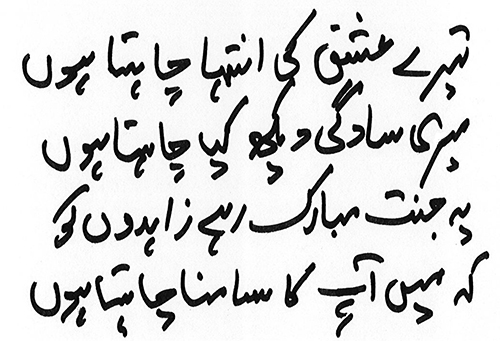At some distant point in the past, you started a long and difficult trip. Over the course of that journey, you arrived at a small, beautiful green oasis located in the midst of a harsh desert. As you entered the oasis, you were given a donkey to carry your burden and help you with your various tasks.
At the oasis, you started meeting other individuals. Some of them become your friends and companions. Soon, you forgot that the oasis was merely a brief stopover, and became completely engrossed in its activities and attractions. In time, the oasis will be destroyed by harsh sandstorms, and those who have not already departed will perish in a final cataclysmic event. The manner of departure of each lonely traveler has been different. Some slipped away peacefully in the night, aided by the cool breeze as they journeyed on. Others were ejected forcefully and violently. In every case, the donkey collapsed at the threshold during the solitary exit. Removed from its hustle and bustle, and with the oasis gates slammed shut, the only option is to proceed forward. At that moment, you recognize yourself. You recognize yourself as a lonely traveler.
Past the oasis, on the other side of the desert crossing is your ultimate destination, a garden of unparalleled beauty. Cool mountain streams run through beautiful flower patches and lush, green fields stretch as far as the eye can see. The food and habitation are exemplary, and the place is well protected from the elements. In this green paradise, you will be reunited with some of the people you befriended at the oasis, as well as those who passed through before or after your time. Moreover, you will meet up with an eternal companion, possibly from amongst the contemporaries back at the oasis. The journey to this permanent abode, however, is full of perils. As such, you have to be mindful in your preparations, or risk getting lost in the desert after you depart from the oasis.
Unlike yourself, the donkey prefers to linger in the desert oasis forever. The animal is willing to exert itself, but only to the extent required to enjoy the oasis and control as much of it as possible. Beyond this demand on its time, the donkey simply wants to enjoy itself. Hardship, sacrifice, and perseverance in the face of adversity do not appeal to it. Your job is to prepare yourself and others for the desert crossing. These tasks do not fit the donkey’s agenda. Nevertheless, they require its participation.
As such, you must exercise wisdom and adopt a balanced approach towards the animal. Both extremes … neglect and overindulgence … are recipes for disaster. After all, the traveler has stopped at the oasis for a purpose. While it has numerous and delightful attractions, the oasis is also a place of strife, suffering, and injustice. Before time as we know it, every traveler destined to pass through the oasis made a covenant before the Allah recognizing Him alone as Master and Creator, worthy of worship and obedience. Later, many drifted away from this natural religion of humanity. Some even committed the outrage of declaring fellow travelers as divine – as son, mother, or another relative of the almighty. They forgot that each traveler is but a humble speck in the oasis, that the oasis is but a speck in the desert, that the desert is but a speck in the universe, that the universe is but a speck in the kursi of Allah, and that the kursi is but a speck in the arsh of Allah. And the arsh is worthless before the One who created it all, surpassing space, time and matter. How then can someone who sleeps, eats, and urinates be one with the One? The good life is not just a matter of behaving in a fashion that individual travelers may fancy. Rather, the imperative is to pass through this oasis in a manner consistent with the primordial covenant.
Together, the donkey and its ‘rider’ represent dual elements of each lonely traveler. The first aspect of this duality is easy to recognize – the ‘donkey’ is the human body, ego, and desires. It is inclined towards recreation, physical pleasure, and laziness … preoccupied with wealth, fame and authority. When the donkey’s priorities become those of the rider, material success in the oasis becomes an overwhelming focus. The identity of the ‘rider’, on the other hand, is far more elusive. As the amr of Allah, the ‘rider’ is not of this world but represents divine moral authority. As such, properties such as size, shape, density, and location – even gender – do not apply. It is far easier to recognize the rider through a range of attributes, the least noble of which is the intellect. An attribute superior to the intellect is moral justice (not only towards others, but also in dealing with oneself, and in the stewardship of the environment). However, the noblest of all the rider’s attributes is the transcendent experience of the divine. At this highest level, the rider manifests divine moral authority in the physical world. Such a rider is like the surface of a clear pool of water upon which the eternal Truth is reflected. Without exception, such a rider is the noblest creation of Allah (Alaha in Middle Aramaic, Elaha in Biblical Aramaic, and Elohim in Hebrew). Finally, the rider has a name … the Ruh. And there are three, not one, that bear this name.


Itís difficult to find educated people for this topic, however, you seem like you know what youíre talking about! Thanks